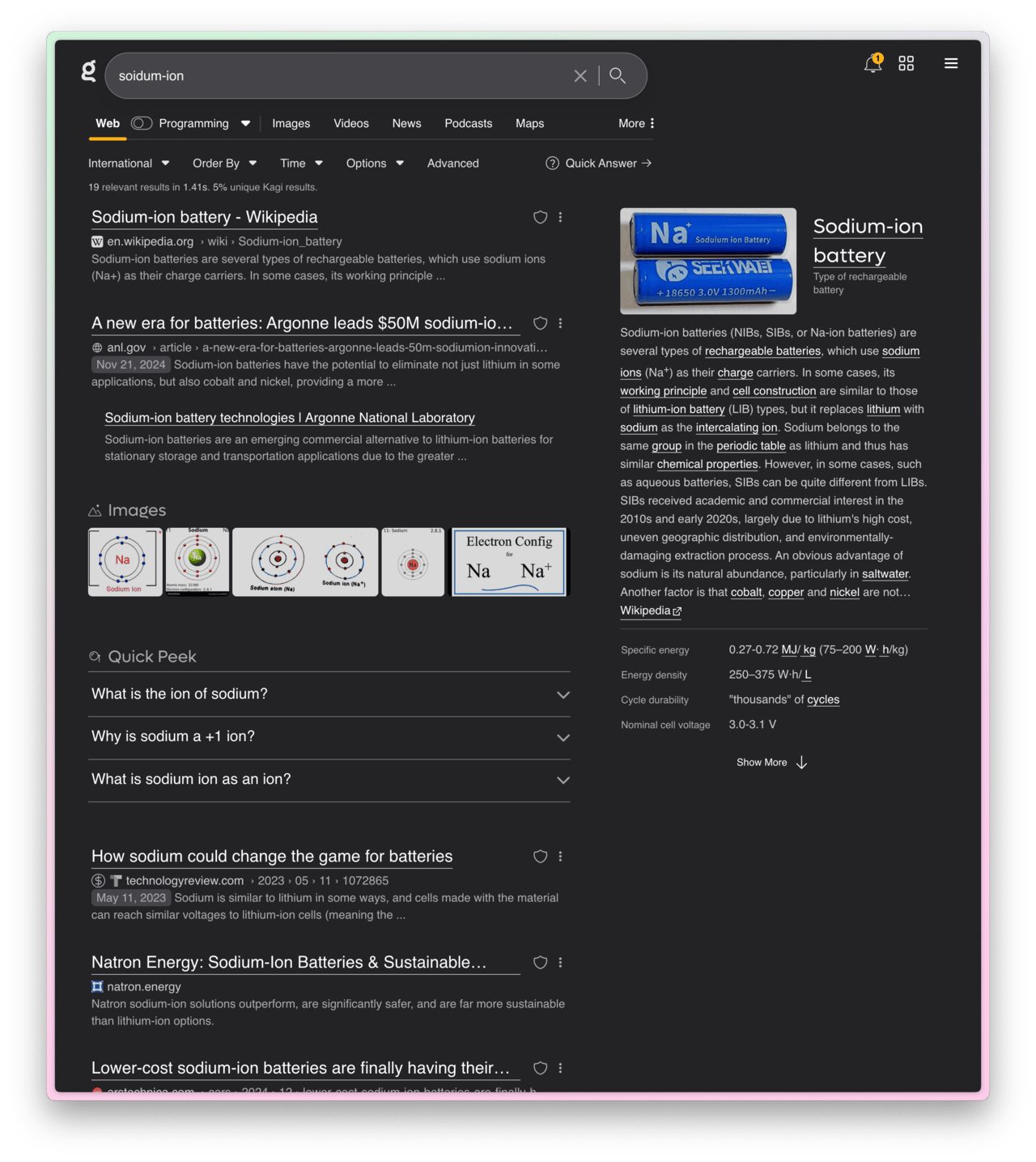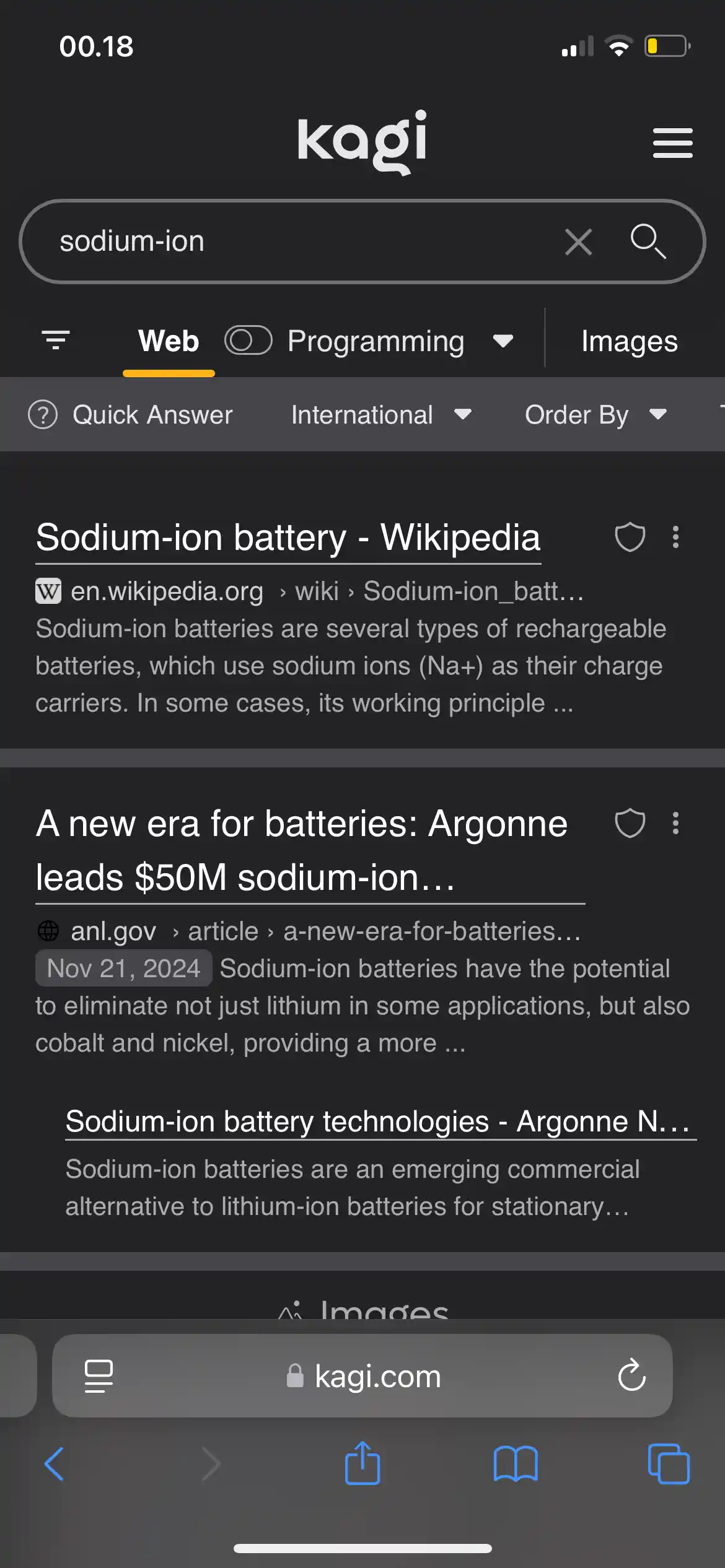The past year I’ve been focusing on taking control of as much of my digital habits as possible. One of the areas I’ve looked at, is finding a replacement for Googling. Going back to primary school, when I was tought to do research, Googling was always part of it. Even back then there was hardly any other option and for the past 10 or so years it’s felt even less like a choice. It’s become ubiquitous for “search”, mainly because it was great at it.

But things have changed. Now it doesn’t take much to recognise the notion that Googling isn’t necessarily providing you the best results anymore. Not only does it feel like you are being “lead” somewhere no matter what. You also can’t help but notice, that the new changes they introduce seems to be implemented, not because you need them, but because someone needs you to use them.
That’s usually when you would start looking around for alternatives, but understandably, Googling has become so natural that most of us can’t imagine how we would start looking for a replacement.
The past couple of years, I’ve tried a few ones before finally landing on Kagi. Of course you know of Bing and Yahoo and while they are both not very good, and therefore easy to dismiss, even if they were good, their track record for how they treat their users, doesn’t really invite your curiosity. But you have other options too and even if I’m going to recommend Kagi, I think you should check out Ecosia, DuckDuckGo and Qwant as well! I’ve tried them and I think they were either a little too fancy or not aggressive enough.
What do I mean by that?

They are too fancy
I think a common problem for new services is, that they try to be too much. Especially for something that should feel both simple and as a utility, I can’t help but notice, if they are polishing it in certain ways. That goes as well for things like Browsers, News websites, Code editors, Email clients, etc. You don’t want them to be too fancy, because while implementing fancy things a service runs the risk of adding noise to main job. A Search engine is the same. It’s a “simple” job. The “nice” thing about Google, has always been, that it is just a search field and a rough looking list. Bing was trying to gloss it up with features and that’s partly why I think no-one use it. It doesn’t seem trustworthy and its softened corners (symbolically speaking) makes it feel slow.
Kagi looks rough. It is dry. It feels basic and to the point. You search, it provides answers. It’s very much like how Googling used to feel like: A tool – not an experience.
They are not aggressive enough
Another common problem for new services is, that they aren’t being aggressive enough. That goes both in terms of their mission and implementation. If I am to change my behaviour, it has to feel different. If it feels the same to use, there is less friction to keep me from going back. I’m looking for an alternative that stand for something. Google earns their money from selling advertisements to you. Many of the alternatives are trying to disrupt Google by making services that feels better because they don’t advertise, but nothing that’s useful and successful (and costs money for them to provide) can be free to use, and many of the alternatives have had to find, in best case awkward, worst case shifty, ways to pay their bills.
Kagi understands that it has to be profitable, but it wants to provide me an ad-free experience and not sell my data. They solve this in the most direct way possible: By charging me money. I like that. That’s clear communication and a simple contract. Search is something I do every single day. I think paying for it, with money – not data – is a good idea!
Is Kagi a better search engine?
The answer to this is obviously gonna be subjective. No doubt Kagi will take some time getting used to and maybe you notice a difference in quality you don’t like. I’ve been using it for a year now and I personally think the results have not been worse than on Google. And I really think the overall experience has been better! Mainly because less energy is being spend on trying to trick me into spending time searching, which causes less brain strain on my part.
There are also a few nice implementations:
- You can easily replace the the default search behaviour in any of your browsers. Kagi also suggest installing their Orion browser, but I wouldn’t recommend that. Just follow their guide.
- If AI is important to you, Kagi have build that in as well, but in a very healthy opt-in way. They don’t believe in replacing search results with AI slop.
- Kagi have created the amazing “Small Web”. It’s a little subsite that only take you to small websites at the corners of the internet. Very reminiscent of the old internet where most websites weren’t connected and you had to discover the url from a friend or naturally in another article. Very lovely!
There are a few downsides though. One being, that since Kagi doesn’t have the money that Google has, they can’t easily pay for data from (now) closed sources like Reddit. Since Reddit has historically been a pretty good source for information, that is definitely a loss. But the internet is always in motion. A small price to pay, if you ask me.
One more thing worth mentioning is that the DOJ have set in motion to push for Google to have to syndicate their search results with other rival engines. While this will not happen overnight and without a fight, it holds the potential, that whichever problems that Kagi might have with providing as good results as Google, might disappear. Here’s hoping!

Thanks for reading!